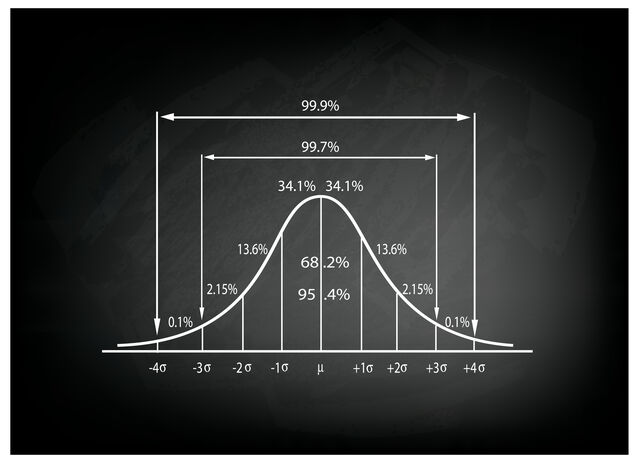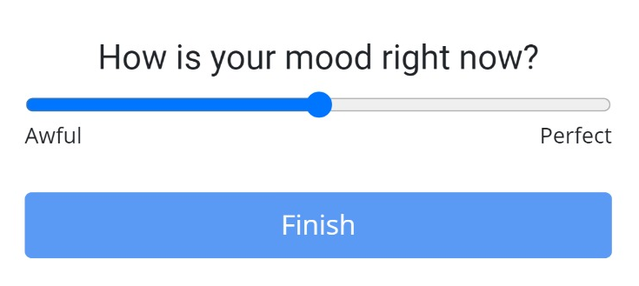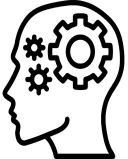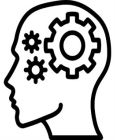Nootropics
How to Tell If a Nootropic Is Effective for You
Use science to understand the influence nootropics have on you.
Posted September 15, 2020

Are you taking tons of nootropics, feeling that some of them might be doing something, and hoping for positive effects on your cognitive health in the long term? Yet do you find yourself not knowing if the pills and powders you spend hundreds of dollars on per year work? Or perhaps you aren’t taking any nootropics because you don’t think there is strong enough evidence for their effectiveness.
Creatine is perhaps the most used supplement in the world. There’s a lot of evidence supporting its efficacy as a physical performance enhancer. [1][2] But, some people don’t get any effects at all from creatine. [3]
Our bodies and minds respond very differently to nootropics. In fact, usually, studies that examine the effects of nootropics result in a normal distribution of participants' responses to the intervention. This means that some people have a far stronger effect than the average person and other people may even have negative effects from a substance like creatine.

The point of conducting placebo-controlled studies on a nootropic is to find out if it has certain effects on average over a population. If it does, it can be assumed that if the nootropic is taken by many people, most people will have effects similar to those found in the study. In the case of creatine, this means physical performance enhancement.
Due to the nature of how science is usually conducted, confident and valid conclusions about the efficacy of a nootropic for any specific individual are impossible. But there are several problems with this approach that hinder your ability to understand the true effects of nootropics. For example, faulty memories.
Until recently, there has not been any way to find out if a nootropic is effective for you.
Sure, you could try it and see if you get the effects that you’re looking for.
We all have faulty memories, however. It is the way our brains and minds work. Memories are your brain’s attempts to construct an accurate representation of the past. But there’s always some error in the encoding, storage, and recall of memories. When you try to recall how you felt last week before you took a nootropic, the present mental picture that you have of your mood last week will be foggy at best. So when you try to compare how you feel now versus last week, you’ll make a faulty comparison because your measurement instrument (your brain/memory) is not valid and reliable.
There are many other sources of error in subjective judgments of the effects of supplements. Auto-correlation, placebo effects, and expectancy bias are other examples of biases relevant to self-experiments that you may want to learn about online.
Considering that subjective judgment, or even taking notes, has several methodological flaws, how can you know if a nootropic is effective for you?
If you’re in the category of people who use a lot of nootropics, you are likely experimenting more or less scientifically to try to figure out what the effects are for you. If you’re not using nootropics because you don’t think there’s enough evidence of effectiveness for any given supplement, perhaps you will be more open to using nootropics when you get to know that there’s now a practical and scientific way to find out if a nootropic is effective for you.
You can now test subjective mood in the Nootralize app. With our tool, you can conduct self-experiments in a scientific manner with the help of visual analogue scales and automated statistical analyses.
For example, let’s say you want to understand if caffeine improves your mood when you use it for five days in 100mg doses each morning. You can measure your mood each day on a scale in the Nootralize web app for five days when not taking caffeine to establish a baseline for comparison with your coming caffeine days. Then, you take 100mg caffeine each day and continue to log your mood, with the same visual analogue scales. When you’ve done this, a statistical analysis will be run automatically on your data to determine if there was an effect from something you did (such as using caffeine) during the second five-day period.

When you conduct a systematic self-experiment on the effects of caffeine on your mood like the one described above, you will avoid letting biases like auto-correlation and recall bias (faulty memories) influence the quality of the results. This way you can find out if a nootropic is effective for you with a scientifically sound methodology.
There are some limitations with the Nootralize web app self-experimentation feature. For example, you cannot currently easily conduct placebo-controlled or randomized self-experiments. These are methodological problems we’re working on enabling people to overcome in the future.
Conclusion
The results from scientific studies on the effects of nootropics are of some utility to the individual who is looking to understand if a nootropic is effective specifically for them. Data from placebo-controlled studies is useful for informed nootropic use decisions. However, a study on the effects of a nootropic in many people cannot answer the question of whether a nootropic is effective for a specific individual.
Subjective judgment, through “feeling the effects,” has several methodological flaws as well, leading to misunderstanding of the actual effects of nootropics.
The Nootralize app self-experimentation feature provides a solution to many of these problems. However, in the current version, it is still limited in its ability to address some biases that can affect the quality of the data gathered by self-experimenters on the effects of nootropic compounds.
This blog post was published at blog.nootralize.com, it is not a substitute for professional medical advice, diagnosis, or treatment.




